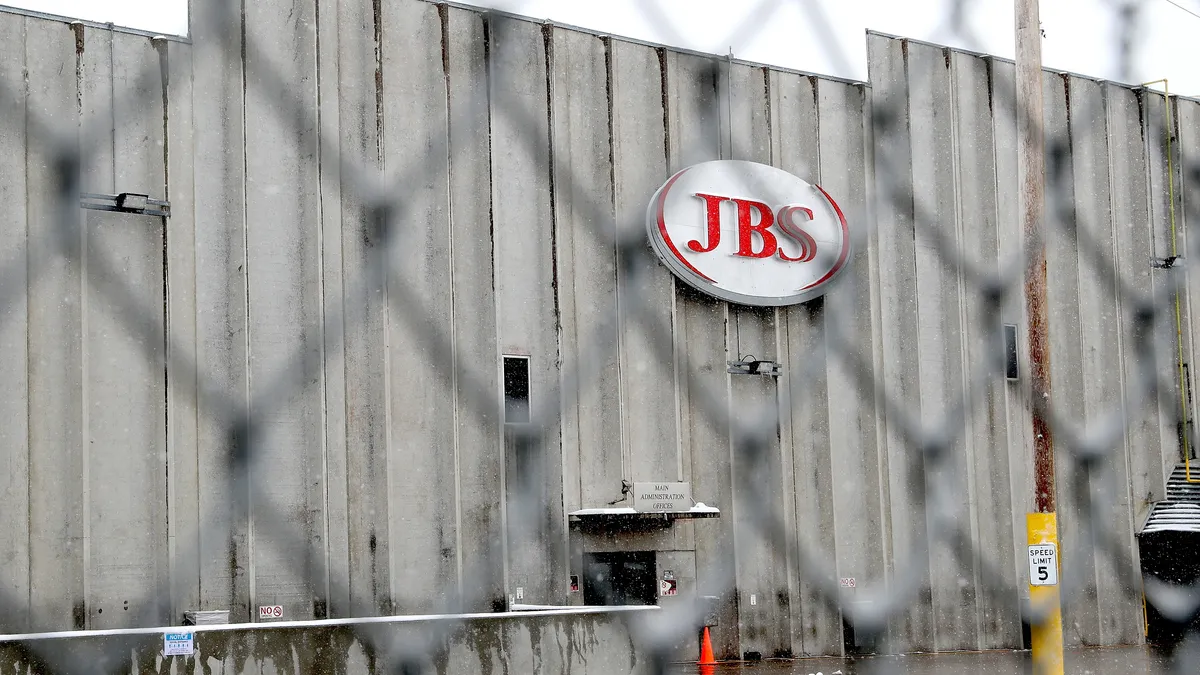Dive Brief:
- JBS Swift & Co. has agreed to pay $5.5 million to settle a lawsuit brought by the U.S. Equal Employment Opportunity Commission alleging race, national origin and religious discrimination at the company's beef processing plant in Greeley, Colorado.
- The EEOC alleged in the 2010 lawsuit that the employer discriminated against employees because they were Muslim, immigrants from Somalia and Black. The EEOC said the employer denied religious accommodations to Muslim employees at the Greeley plant, including denying the Muslim employees the ability to pray, and that Muslim employees were harassed when they tried to pray during breaks, including bathroom breaks. During the holy month of Ramadan in 2008, the employer allegedly shut off water fountains or tagged them to stop Muslim employees from getting a drink of water after they had fasted all day and from washing before prayers. Somali Muslim employees were also disciplined more harshly than other employees, the EEOC said. The Commission also alleged that JBS managers and other employees "threw meat and bones" at the workers, routinely called Somali employees offensive names because of their race, national origin and religion and tolerated racially offensive graffiti in restrooms at the Greeley facility.
- Approximately 300 employees will participate in the settlement. JBS agreed to make former employees eligible for rehire; to review, update and post its anti-discrimination policies; to maintain a 24-hour hotline for reporting discrimination; to investigate employee complaints; to support a diversity committee; to provide annual training on anti-discrimination laws; and to provide clean, quiet and appropriate locations other than bathrooms for employees' religious observances. EEOC Chair Charlotte A. Burrows described the relief as "significant."
Dive Insight:
Title VII of the Civil Rights Act of 1964 requires that employers reasonably accommodate an employee's sincerely held religious beliefs "unless doing so would cause more than a minimal burden on the operations of the employer's business," according to EEOC. For example, the 11th Circuit last year determined that an employer didn't violate federal law when it decided that a schedule proposed by a nuclear power plant employee wasn't reasonable because it would have required other workers to "bear an additional workload of an already demanding job."
In addition, the EEOC has said that employers may bar an employee's religious dress or grooming practice based on workplace safety, security or health concerns.
Voluntary shift substitutions, flexible scheduling and job reassignments have often been used to meet a worker's religious accommodation request.
However, employees are not entitled to the accommodation they prefer. In one instance, a court upheld the employer's decision that a worker should skip weekend work altogether after he asked for Saturdays off to accommodate his religious beliefs. The worker wanted to work on Sundays and was unhappy that not being able to work on weekends caused him to miss out on the overtime pay.
In determining an accommodation, employers are expected to engage in an interactive, good-faith process. Training managers to recognize the need for accommodations and to handle requests is a good idea. Some experts have also suggested that organizations form an interfaith employee resource group similar to the ones often set up for gender and race. The groups can provide feedback to companies, allowing them to be mindful of the things that organizations may be doing that are not inclusive of people of different religious backgrounds.











